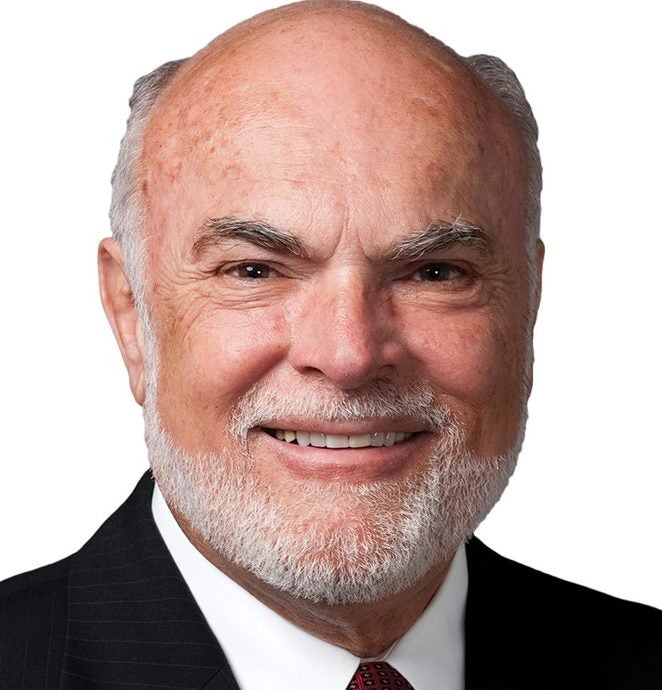My Five Cents
Published 7:12 pm Saturday, April 13, 2019

- District 3 State Senator Robert Nichols
By Robert Nichols
With only seven weeks left in the session, the Legislature is well on its way to completing its to do list with both chambers passing their versions of the budget. This is the only constitutionally required task for the Legislature to complete.
Here are five things happening at your Capitol this week:
- Human Trafficking Taskforce
Recently, Senator Jane Nelson passed Senate Bill 72 out of the Senate. This bill will create the State Human Trafficking Prevention Coordinating Council, which will be housed at the Office of the Attorney General. The Council will be made up of the governor, the attorney general and members of six state agencies including the Texas Department of Public Safety and the Department of Family Protective Services. To help the approximately 313,0000 victims of human trafficking, both labor and sex trafficking in Texas, the council will be charged with developing a state plan and collaborate human trafficking-related expenditures across state agencies. This bill is now in the House.
- Senate Passes State’s Budget
This week, the Senate unanimously approved a two-year $248 billion budget for our state. This includes a $6.3 billion increase in funding for public schools, which covers an increase in teacher salaries and aid for school districts. $59 million was included to help expand outpatient community mental health capacity, and an additional $272 million to address CPS caseloads and expanding Community Based Care for foster children. There is also additional funding to help reduce wait times at our driver’s license offices, maintain border security levels and provide an increase to transportation funding to help with mobility.
Senate Bill 500, the recently passed supplemental budget, included funding to help the Gulf Coast recover and rebuild after Hurricane Harvey, and provided $900 million to help Harvey-impacted school districts. The budget will now be sent back to the House, and a conference committee will be appointed to work out the differences between the House and Senate versions of the state’s budget.
- Cost of Special Education
In recent years, Texas has received many reprimands from the federal government relating to the way it has handled funding for special education and for capping the percentage of students who could receive special education services. Specifically, the U.S. Department of Education (USDE) has found Texas is in violation of a federal statute prohibiting states from reducing their funding for students with disabilities year after year. Texas was warned that a financial penalty for this violation was inevitable.
The Texas Education Agency estimates that for 2012, 2017 and 2018 they could be penalized approximately $111 million, with an additional $111 million penalty estimated for the fiscal year 2019. The agency is currently working with the Legislature and the USDE to address these concerns.
- Open Meetings Act
Senate Bill 1640, by Senator Kirk Watson, has passed the Senate and will restore a provision previously struck down by the Texas Court of Criminal Appeals which made it a crime for public officials to meet in a “walking quorum”, or to deliberate privately in small groups without a quorum present. The bill lays out specifics for this prohibition and requires the boards to continue to post for a public meeting, establish a quorum, and then be able to discuss the business of the board publicly. This is the way boards in Texas have operated for years and should continue to do so to ensure transparency and accountability to the public they serve.
- Rural Broadband
High-speed internet has become a part of our everyday lives and essential for businesses, school districts and those in the medical field to ensure they are providing the best services they can. However, for many rural parts of our state, Texans do not have access to high-speed internet coverage, or cell phone coverage for that matter. I have surprised many other members in the Legislature when I share with them that we do not have adequate cell coverage in Senate District 3.
Last week, I passed Senate Bill 14 off the Senate Floor. This bill will help to increase access to broadband internet for rural areas in Texas, through the help of Texas Electric Cooperatives (Co-Ops). These Co-Ops are member-owned non-profits, which have over 300,000 miles of distribution lines throughout rural Texas. By utilizing their existing electricity infrastructure, they would be able to deploy broadband to the members they serve and meet their need for high-speed internet.
Robert Nichols is the Republican Senator for the 3rd District in the Texas Senate.





